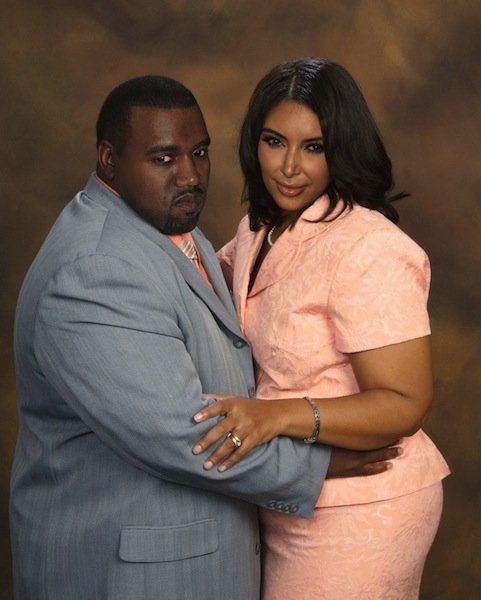Yesterday’s campaign events and related media coverage perfectly illustrate the points I’ve been making in my last several posts regarding the relative importance of campaigns and the underlying fundamentals as influences on presidential election outcomes. First, in this New Yorker article, Jill Lepore buys into the standard media narrative which sees campaigns in terms of the daily duel of messaging, advertising and related tactics. Not surprisingly, Lepore believes the recent efforts by the Obama campaign to highlight Romney’s Bain years and income tax statements have boxed Mitt in: “On this turn, though, Romney has been outmaneuvered. His opponents in the primaries made it impossible for him to run on his record as governor of Massachusetts, and Obama’s campaign has made it very difficult for him to run on his record at Bain. All the same, the game is only just out of the box. Romney’s looking at an empty map and holding a fistful of pins. It’s his move.”
Of course, with four years of a stagnant economy, the real game is not “just out of the box” – but to Lepore, it’s all about the daily tactics, not the fundamentals. And, in this context, Romney’s move was to create his own campaign ad based on an excerpt from Obama’s remarks at a campaign stop in Virginia. In his speech, Obama noted: “If you were successful, somebody along the line gave you some help. There was a great teacher somewhere in your life. Somebody helped to create this unbelievable American system that we have that allowed you to thrive. Somebody invested in roads and bridges. If you’ve got a business, you didn’t build that. Somebody else made that happen.” This, for Romney, was Obama’s Bain moment – the excerpted comments fed into the frame of Obama as an anti-business apologist for big government. Predictably, Romney’s tactic set off a war of words among campaign surrogates as both sides sought to explain what Obama really meant. (Believe me, it is hilarious to be on twitter when one of these campaign food fights break out. The distortions and silliness of the back-and-forth tweeting is something to behold.)
Perhaps sensing vulnerability on the issue (at least that’s what the pundits told me!), the Obama campaign finally came back with this rebuttal ad that is now running in so-called battleground states:
The fact that the Obama administration was forced to bring out the Big Gun himself – the President talking directly to the camera – set the pundits a-twitter once more about how he was on the defensive and whether the “you didn’t build that” comment was driving down his support in the polls.
I hope you see the point. In the span of less than a month we’ve seen at least two incidents that received heavy media focus and that were, in the eyes of some pundits, potentially “game changing” moments – Romney’s Bain experience/income tax and now Obama’s “you didn’t build that” comment. For the media obsessed with the daily give-and-take on the campaign trail, these were important stories. Viewed in isolation from a partisan slant, it is easy to see why either one might change the campaign narrative. But for one of the dwindling number of voters who perhaps has not made up her mind, what you see is not a single ad or event, but instead dueling narratives composed of different ads that present contrasting takes on the these matters. That’s why any single ad, or related issue, usually isn’t a game-changing moment. Not surprisingly, despite – because of? – weeks of breathless media coverage, the two candidates remain virtually deadlocked in national polls.
This is partly because, as this Pew survey indicates, most voters already feel like they know enough about the candidates to make up their mind. Even on the controversial issues like Romney’s experience at Bain, or his income taxes, only about a third of respondents want more information. That’s true of independents as well.

When it comes to the President, Pew finds that “90% say they already pretty much know what they need to know about him; just 8% say they need to learn more.” Given these numbers, there’s not a lot of maneuvering room for the candidates to change voters’ impressions, although Romney probably has a bit more potential flexibility– for better or for worse.
If the dueling ad campaigns are having any impact, it may be to drive the two candidates’ negative ratings higher. According to this MSNBC survey, Obama has his worst ratings in this category since he took office, with 32% of respondents rating their feelings toward him as “very negative.” Romney’s “very negative” rating has also reached its high point to date, at 24%. When Pew asked, “Has what you have you seen, read, or heard in the past couple weeks about [Mitt Romney or Barack Obama] and his campaign for president given you a more favorable impression of [either Romney or Obama] or a less favorable impression”, 43% chose “less favorable” for Romney, and 44% did so for Obama. Faced with clashing negative ads, it appears that some voters are reacting by saying “a pox on both your houses.”
This likely won’t be the last time I caution you not overreact to the latest partisan-driven claim that we are experiencing a “game changing” moment. Indeed, I could probably write a version of this post every day for the next three-plus months. (You’d like that, wouldn’t you?) But maybe the point is more easily grasped by considering previous “gaffes” that at least some pundits thought might cost either one of the candidates the election. Remember Romney declaring he likes to “fire” people, and that he pals around with plenty of NASCAR “owners”, and that his wife drives a few Cadillacs, and that we have no need for “more firemen, more policemen, more teachers”? More recently, there was his initial description of the insurance mandate trigger as a “penalty”, not a “tax”. The Wall St. Journal editors were sure that would be a game changer.
Of course, Obama has had his own share of rhetorical gaffes, including his declaration that “the private sector is doing fine.” Chris Cilliza wrote an entire column on how that would impact the election. Obama took heat as well for his description of “Polish death camps” (oops, there goes the Polish vote!) And now the “you didn’t build that” declaration.
Yes, these were mistakes that were almost immediately incorporated into opposition campaign ads. But did they change the course of the election? I don’t think so. And neither should you – no matter what the pundits declare to the contrary.


